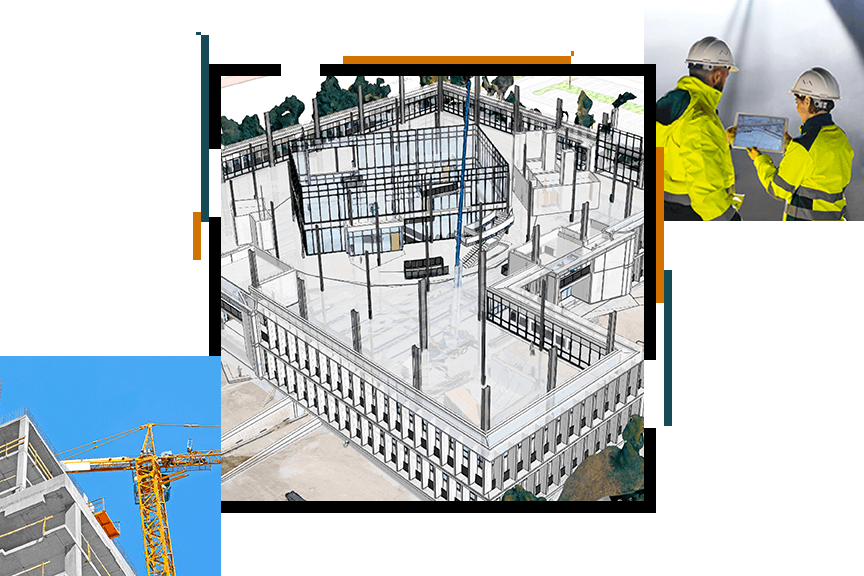The engineering profession stands at an unprecedented crossroads. As artificial intelligence transforms every aspect of our technological landscape, engineers face a fundamental choice: embrace this transformation and evolve, or risk obsolescence in an increasingly AI-driven world. This exploration examines how modern engineers must cultivate versatility and technological adaptability to thrive in the age of artificial intelligence.

Esri's ArcGIS GeoBIM demonstrates real-world integration of GIS technology with construction and engineering workflows
The AI Revolution in Engineering Practice
Artificial intelligence is no longer a distant future concept—it's reshaping engineering practice today. From structural analysis software that leverages machine learning algorithms to optimize designs, to project management platforms that predict potential delays using historical data patterns, AI tools are becoming integral to modern engineering workflows.
In structural engineering, AI-powered analysis tools can process complex load scenarios and material properties to suggest optimal designs in minutes rather than hours. These systems learn from vast databases of successful projects, identifying patterns and relationships that might escape human analysis. The result is not just faster design processes, but often more innovative and efficient structural solutions.
Beyond Traditional Boundaries: The Versatile Engineer
The concept of specialization, while still valuable, is evolving. Today's successful engineers are those who can navigate multiple disciplines, understanding how structural engineering intersects with geospatial analysis, how web technologies can enhance engineering communication, and how data science principles can improve decision-making processes.
Consider the integration of Geographic Information Systems (GIS) with traditional civil engineering. Modern infrastructure projects require engineers who can analyze spatial data, understand geographic constraints, and visualize complex relationships between built and natural environments. This interdisciplinary approach, enhanced by AI tools, leads to more comprehensive and sustainable solutions.
Practical Applications Reshaping Our Field
AI applications in engineering extend far beyond theoretical possibilities. Machine learning algorithms now assist in seismic risk assessment, analyzing historical earthquake data to predict vulnerability patterns in urban infrastructure. Predictive maintenance systems use sensor data and AI to anticipate equipment failures before they occur, revolutionizing how we approach structural health monitoring.
The Web Development Imperative for Engineers
Modern engineering communication increasingly relies on digital platforms and interactive visualizations. Engineers who understand web technologies—HTML, CSS, JavaScript, and mapping libraries—can create compelling presentations of technical data that resonate with both technical and non-technical audiences.

Esri's GIS for Architecture, Engineering, and Construction showcases virtual project modeling overlaid on real urban environments
Interactive web maps, for instance, can transform static engineering reports into dynamic tools that stakeholders can explore and understand intuitively. An engineer who can develop such tools brings immense value to project teams, bridging the gap between complex technical analysis and accessible communication.
Embracing Change: From Fear to Opportunity
The rapid pace of technological change can feel overwhelming, but history shows us that engineers have always been adaptors and innovators. The transition from slide rules to calculators, from hand-drawn plans to CAD software, and from isolated analysis to networked collaboration—each represented a fundamental shift that ultimately enhanced rather than replaced human engineering capability.
AI represents the next evolution in this progression. Rather than replacing engineers, these tools amplify our capabilities, handling routine calculations and pattern recognition while freeing us to focus on creative problem-solving, ethical considerations, and innovative design approaches.
Opportunities AI Brings to Engineering
- Enhanced design optimization and performance analysis
- Improved risk assessment and predictive capabilities
- Faster iteration cycles in design and testing
- Better integration of multi-disciplinary data
- More accurate project cost and timeline predictions
- Advanced visualization and communication tools
Challenges to Navigate
- Need for continuous learning and skill development
- Ensuring AI recommendations align with engineering judgment
- Managing data quality and algorithmic bias
- Balancing automation with human oversight
- Adapting workflows to incorporate new tools
- Maintaining professional competency standards
Building Tomorrow's Engineering Skillset
The engineers who will thrive in the AI era are those who combine deep technical knowledge with computational thinking, data literacy, and technological adaptability. This doesn't mean every engineer needs to become a software developer, but understanding how to effectively collaborate with AI tools and interpret their outputs becomes essential.
Professional development in the AI age requires a shift from purely technical skill acquisition to developing meta-skills: learning how to learn, adapting to new tools quickly, and maintaining curiosity about emerging technologies. The most successful engineers will be those who see each new technological development as an opportunity to enhance their problem-solving capabilities.
Preparing for an Uncertain but Exciting Future
As we stand on the brink of even more dramatic technological advances—quantum computing, advanced materials, autonomous construction systems—the principle of versatility becomes even more critical. Engineers who cultivate broad technical literacy, maintain intellectual curiosity, and embrace continuous learning will find themselves well-positioned to lead and innovate regardless of how the technological landscape evolves.
The question is not whether AI will transform engineering—it already has. The question is whether we, as engineers, will actively participate in shaping that transformation or passively respond to changes imposed upon us. By embracing AI as a powerful ally in our mission to solve complex problems and improve human welfare, we ensure that the engineering profession remains as relevant and impactful in the future as it has been throughout history.
The future belongs to engineers who dare to evolve, who see each technological advancement as an opportunity rather than a threat, and who understand that true expertise lies not in resisting change but in mastering the art of adaptation. In this AI-enhanced future, the most valuable engineers will be those who combine deep technical knowledge with technological versatility, ethical wisdom, and an unwavering commitment to using these powerful tools in service of human progress and societal benefit.